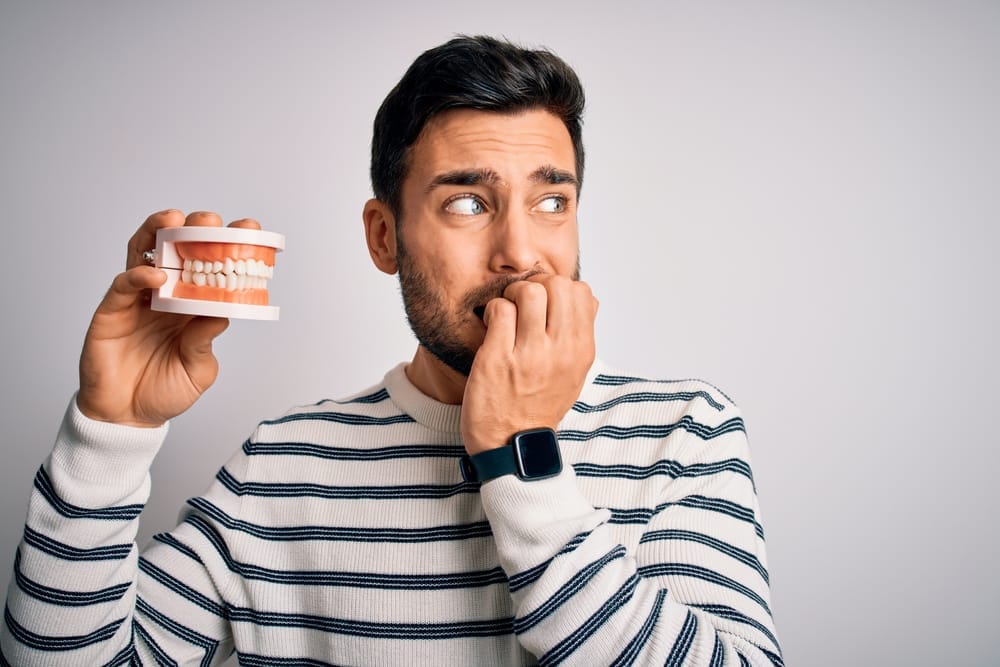 Having dental fear isn’t uncommon. A lot of individuals may have previous stress or anxiety related to their dental appointments, which prevents them from getting regular check-ups. If that’s you, there is nothing to fear.
Having dental fear isn’t uncommon. A lot of individuals may have previous stress or anxiety related to their dental appointments, which prevents them from getting regular check-ups. If that’s you, there is nothing to fear.
At Riverside Dental, we aim to provide reassurance for all our clients. That’s why we provide one of the best services to tackle nerves before entering the dental office: sedation dentistry.
To tackle dental phobia, many practices offer dental sedation. So, in this article, we will look at the ins and outs of the procedure and how your next dental visit can be anxiety-free.
What is Dental Sedation?
Sedation dentistry is a way that medication is used during dental procedures to help relax patients while they’re getting their treatments done. It is essentially anesthesia, but there are different levels patients can choose from as they don’t have to be unconscious to relax during their appointment.
It’s typically used on people who may need a little more assurance. You can feel comfortable knowing the practice is highly experienced when using this method. However, with techniques like these, there are things to consider, like risks.
What Are The Risks?
Like with most medical procedures, there are potential risks involved with sedation. We think you should consider these factors before choosing to go under sedation for your dental care:
Pre-existing Health Conditions
When considering oral sedation, some think of it as a quick fix to overcoming dental anxiety. This can be the case, and many even go on to have dental treatments without the need for sedation in the long run.
But if you know you have respiratory conditions such as asthma or sleep apnea, going under anesthesia could be a higher risk to you than someone without these medical conditions.
During sedation, your breathing pattern and oxygen levels must be monitored. With a higher risk, it may be wise to avoid sedation to prevent further breathing and oral health complications.
Allergies and Intolerances
If your body is sensitive to certain medications found in the dental sedative, you may be at a high risk of an allergic reaction. This could give you a more negative experience than if you decided not to try sedation.
It’s very important to tell your dentist if you are allergic or intolerant to anything beforehand, as they can maybe suggest an alternative to sedation or find a medication that works for you.
Heart Conditions
Although dental sedatives provide a relaxing approach to your dental procedure, they may not be the best option for people who have possible heart conditions. Similarly to pre-existing breathing conditions, you may have a higher risk of your blood pressure or heart rate rising above what it should be.
We want to avoid cardiovascular complications, so it’s vital to tell your dentist if you have any heart conditions before your dental experience. That way, you can experience the sedation treatments that suit you.
Side Effects
Some patients may also have side effects after being administered with the sedation. Common side effects like nausea can come about once your appointment is finished.
Are There Many Sedation Options?
At Riverside Dental, we’re here to transform any previous bad experiences with our expert team. We have a range of sedation levels to give you a stress-free visit.
Minimal: Ensures you are relaxed and awake for the entire procedure. Our dentists will inform you of what is going on as your dental treatment continues.
Moderate: For this, you are still awake but may experience slurring of words and have difficulty remembering things, which will only be temporary.
Deep: The next level up where you’ll still be awake but won’t likely remember what happened when you were under.
General anesthesia: You will be unconscious while our team works on your teeth.
How Do I Know If This Treatment is Suitable for Me?
We want all our patients to feel as relaxed as possible and overcome dental anxiety when they walk into our practice.
So, having a conversation with an expert in dental care before your next appointment is a great way to be on top of your oral health and how to tackle any previous phobias.
Conclusion
Overall, dental anxiety is common in many adults and can stop people from having regular dental appointments.
That’s where dental sedation can help ease your dental treatment, knowing you won’t feel any pain or worry.
If this is something you would like to consider, you can contact our experienced team on our website to learn more about our services and how we can make each dental appointment a relaxing visit.



Leave a Reply